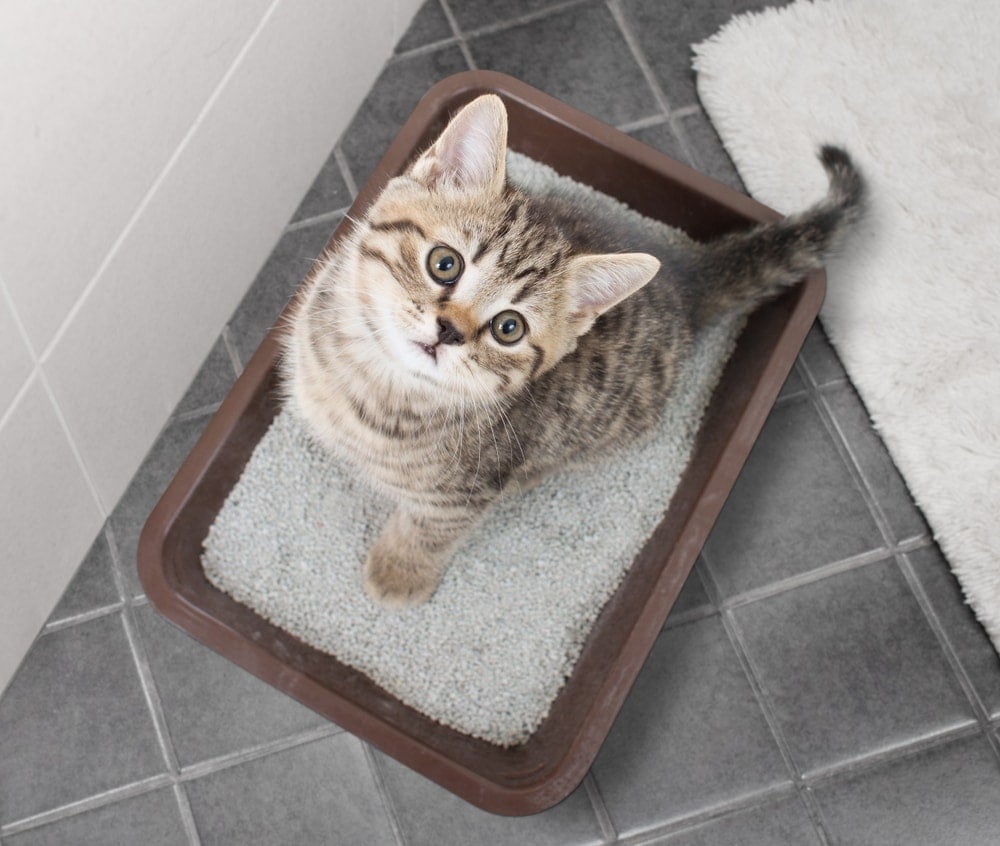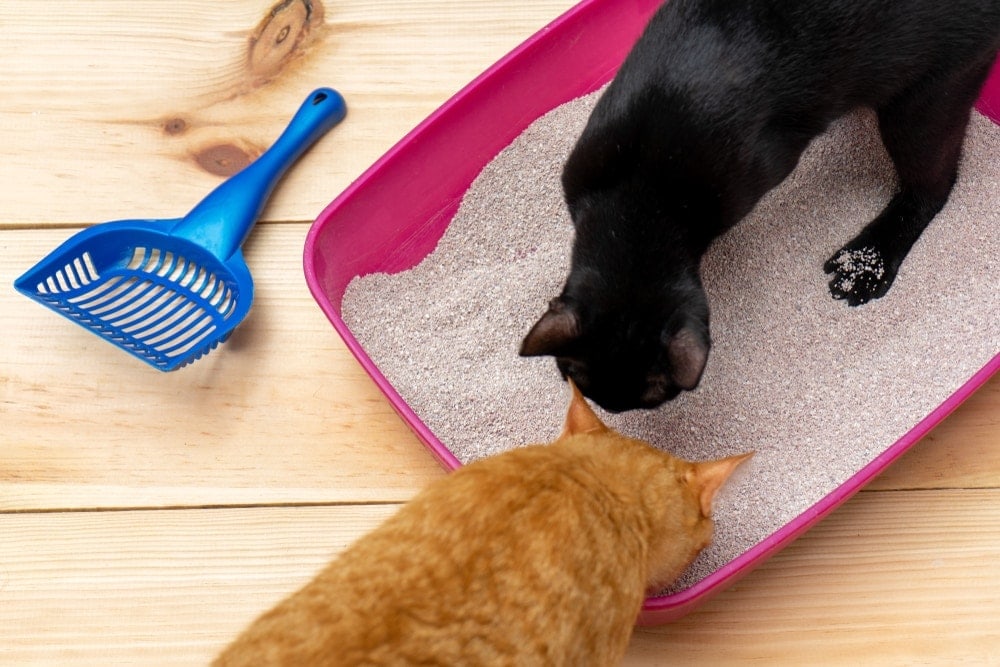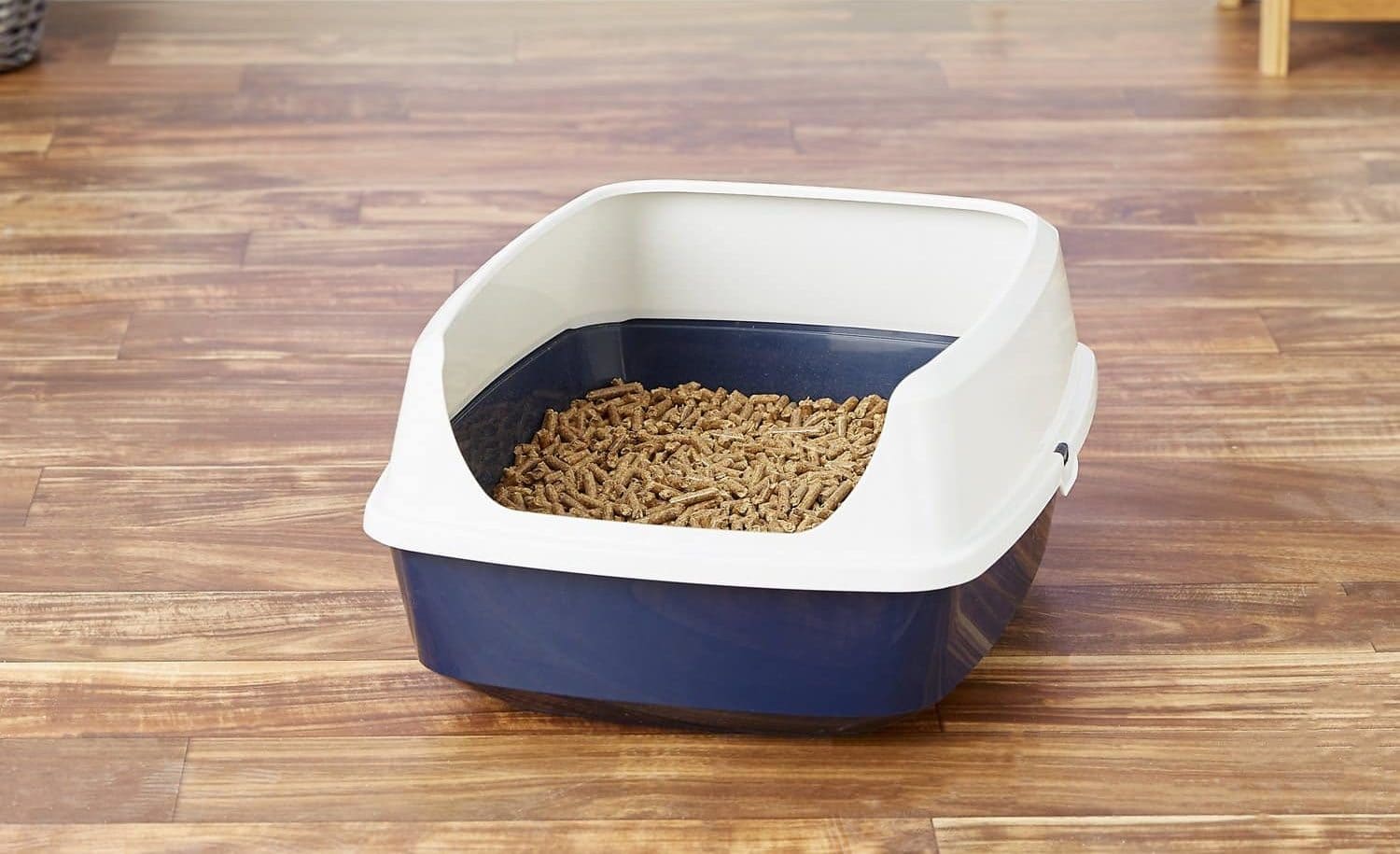How to Use a Cat Litter Deodorizer in 5 Easy Steps
By Jessica Kim
Updated on
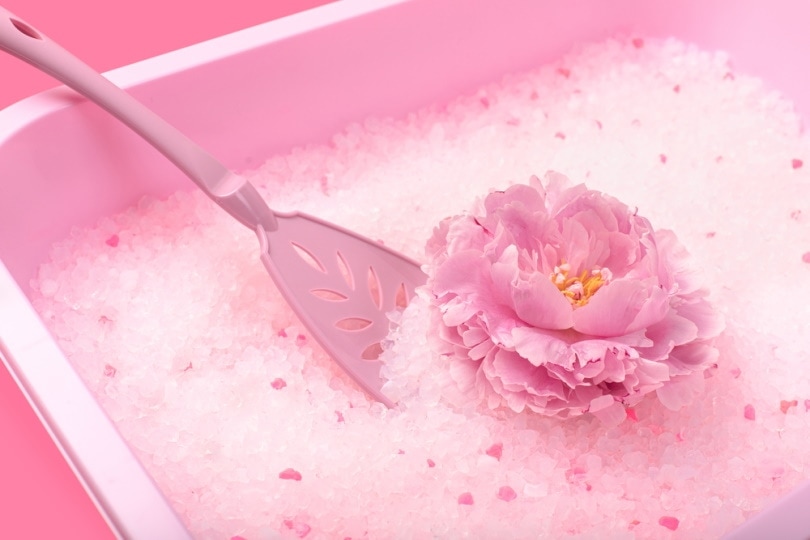
Cat urine has a distinctly strong odor that can be difficult to remove and deodorize. Thankfully, cats are usually good with using a litter box, so the odor gets contained in specific places.
While using high-quality litter can help deodorize and trap smells, you may still need additional help to keep your house smelling fresh and clean. Cat litter deodorizer can boost deodorizing strength to minimize odors after your cat uses the litter box. Here’s what you need to know to ensure that you’re getting the most out of your cat litter deodorizer.
Before You Start
Make sure that you start with a completely clean litter box. It is best to use a litter box cleaner to ensure that you remove all the existing odors. Remember that plastic can absorb odors, so if you have a regular plastic litter box without a liner, you may need to purchase a new one. After you wash and clean the litter box, check to see if there are any lingering odors. If the smells don’t disappear after a second wash, consider purchasing a new litter box.
The 5 Steps to Use a Cat Litter Deodorizer
1. Sprinkle a Layer of the Deodorizer on the Bottom of the Litter Box
This first step is one of the most important steps. Adding a layer of litter box deodorizer to the bottom will ensure that moisture doesn’t seep and stick to the bottom of the box. The layer should just coat the entire bottom of the pan. It doesn’t have to be too thick because a layer of cat litter will rest on top of it.
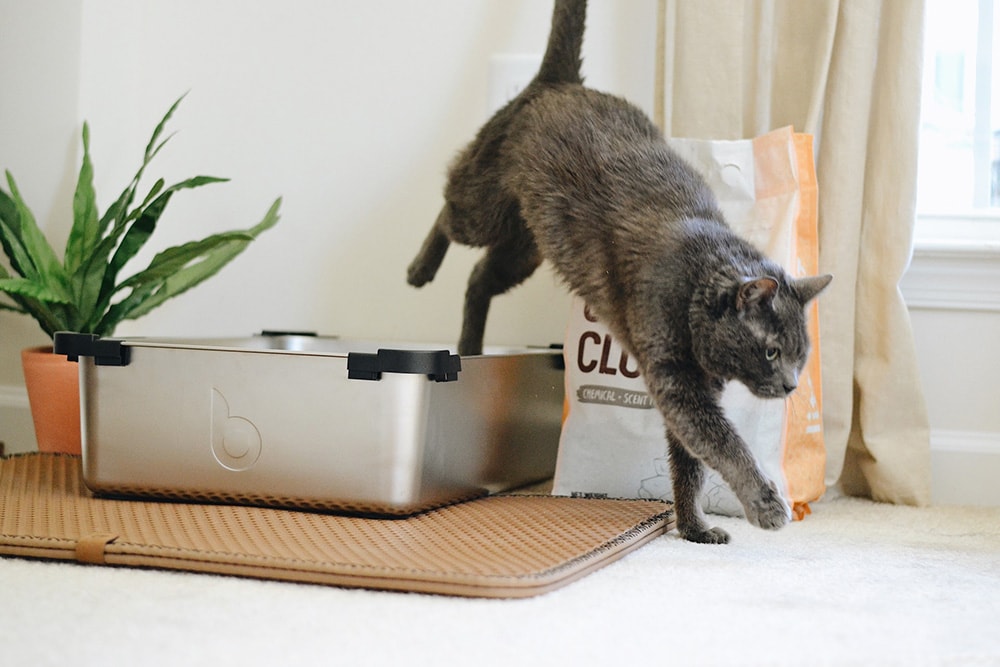
2. Add a Layer of Cat Litter
Once you have a bottom layer of cat litter deodorizer laid out, fill your cat’s litter box like you normally would. Just be careful when you first start filling up the box. Work slowly to prevent the deodorizer power from shifting around or flying up in the air.
3. Coat the Top of the Cat Litter with the Deodorizer and Mix
After you have filled the litter box with your usual cat litter, sprinkle a thin layer of the deodorizer on top. Then, carefully mix the deodorizer powder with just the top layer of cat litter. This step is especially helpful for cat owners with cats that have sensitive paws and are particular about their litter.
If your cat isn’t very picky with its litter’s texture, you can leave an additional thin layer of deodorizer powder on top after you’ve mixed the previous layer of powder with the cat litter. This step is optional and is more applicable to multi-cat homes where litter boxes are used more frequently.
Wondering whether an enzymatic spray or deodorizing powder is better at fighting pet odors? Compare our Pet Stain & Odor Eliminator Spray to our Deodorizer Powder to see which product is best for your deodorizing needs.
 Hepper Bio-Enzyme Pet Stain & Odor Eliminator Spray |
 Hepper Advanced Bio-enzyme Deodorizer & Litter Additive |
|
|---|---|---|
| Eliminates smells |
Eliminates smells:
|
Eliminates smells:
|
| Works inside your cat's litter |
Works inside your cat's litter:
|
Works inside your cat's litter:
|
| Removes stains |
Removes stains:
|
Removes stains:
|
| Works on contact |
Works on contact:
|
Works on contact:
|
| Works on a variety of surfaces |
Works on a variety of surfaces:
|
Works on a variety of surfaces:
|
| Unscented |
Unscented:
|
Unscented:
|
4. Mix Cat Litter Occasionally
Your cat will do a good job of mixing around the deodorizing powder while it kicks and scoops the litter whenever it uses the litter box. However, there’s no harm in helping out by occasionally mixing around the litter, especially if you have clumping litter.
You can also add a new layer of deodorizer powder every few days right after you scoop out the litter box.
5. Clean Out Litter Box Regularly
Even if you use a litter box deodorizer, you will still have to clean out the litter box regularly. Deodorizers only act as boosters that enhance a cat litter’s ability to mask or trap odors. They won’t eliminate smells and aren’t meant to keep litter boxes cleaner for longer periods.
So, stick to the same litter box cleaning schedule you’ve always had, even after you add deodorizer to the litter box.
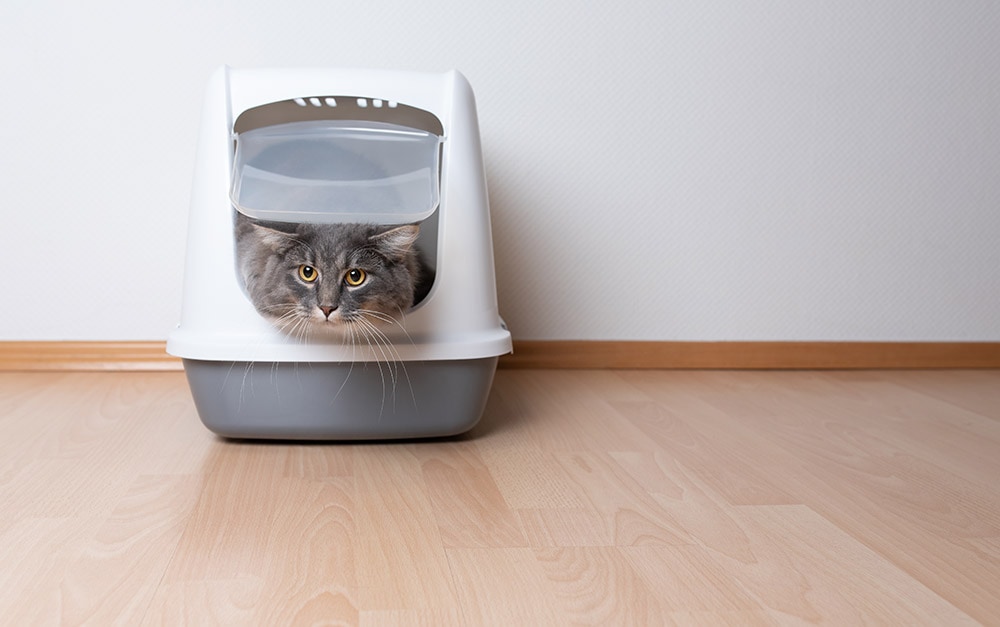
 Other Ways to Reduce Litter Box Odors
Other Ways to Reduce Litter Box Odors
Deodorizer powders can help immensely with reducing odors. However, if you don’t notice much change in the level of odors after using them, you can try several other things.
Visit Your Veterinarian
First, it may be time to take your cat to the vet for a check-up. Cats with particularly strong and pungent urine may have a urinary tract infection. If they’re dehydrated, their urine may also have a darker color. Your veterinarian can help you rule out any medical causes for any urine that smells stronger than usual.
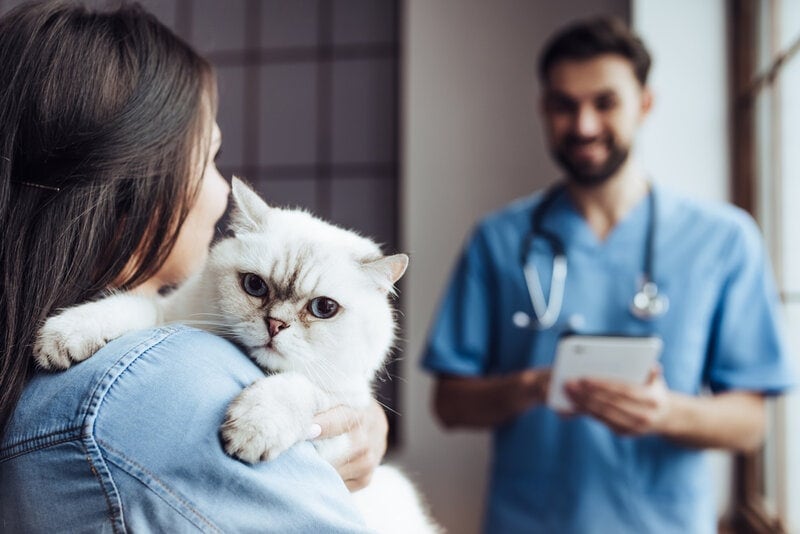
Increase the Number of Litterboxes
Reducing urine smells may be as simple as adding a few more litter boxes around your house. This is especially helpful for multi-cat homes. As a general rule of thumb, a home should have one litter box per cat and one extra.
So, if you have three cats, the minimum number of litter boxes in your home would be four. You may need more depending on how frequently your cats use the litter boxes and how much they urinate.
Change Your Cat’s Diet
Your cat’s diet can also affect the odor of your cat’s urine. If your cat is prone to contracting UTIs, you may want to speak with your vet about switching over to a urinary care diet. These are prescription diets that can help dissolve urinary stones and stabilize urine pH levels, which can help reduce the strength of odors.
Make Sure Your Cat is Staying Hydrated
Since urine smells can be stronger in dehydrated cats, make sure that your cat is drinking plenty of water and fluids. You can try switching the bowl to a fountain if you have a stationary water bowl. The sound and movement of the water may encourage some cats to drink more frequently. Switching your cat to a wet food diet or adding broth to its meals can also help with hydration.
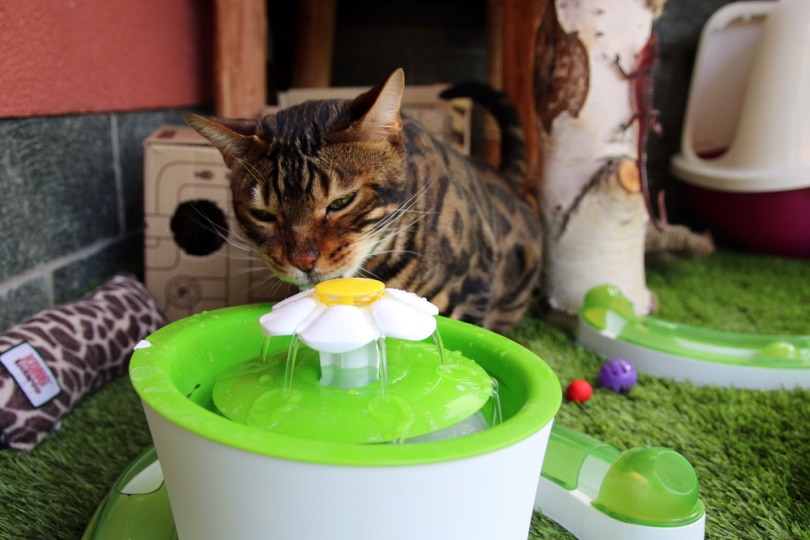
Use Charcoal Filters
Charcoal filters are natural odor absorbers and are often used as air filters. You can try mixing charcoal in your cat’s litter box or around it. This will activate the charcoal to absorb smells. One of the benefits of charcoal filters is that they can last for a few months. Some brands of activated charcoal filters can even be reactivated by boiling in water or baking.
Conclusion
Cat urine odors can be extremely unpleasant in the home. Using deodorizing powder is one of the most common ways you can combat and eliminate odors. It’ll likely take a few tries to figure out the best litter box arrangement and cleaning schedules to keep odors at bay.
If you ever notice that your cat’s urine is particularly pungent or discolored or see changes in its behavior, speak with your veterinarian regarding any potential underlying health concerns.
Read Also:
- Is Litter Deodorizer Safe For Cats? Safety & Effectiveness Examined
- 8 Best Eco-Friendly Litter Boxes – Reviews & Top Picks
Featured Image Credit By: evakerrigan, Shutterstock

